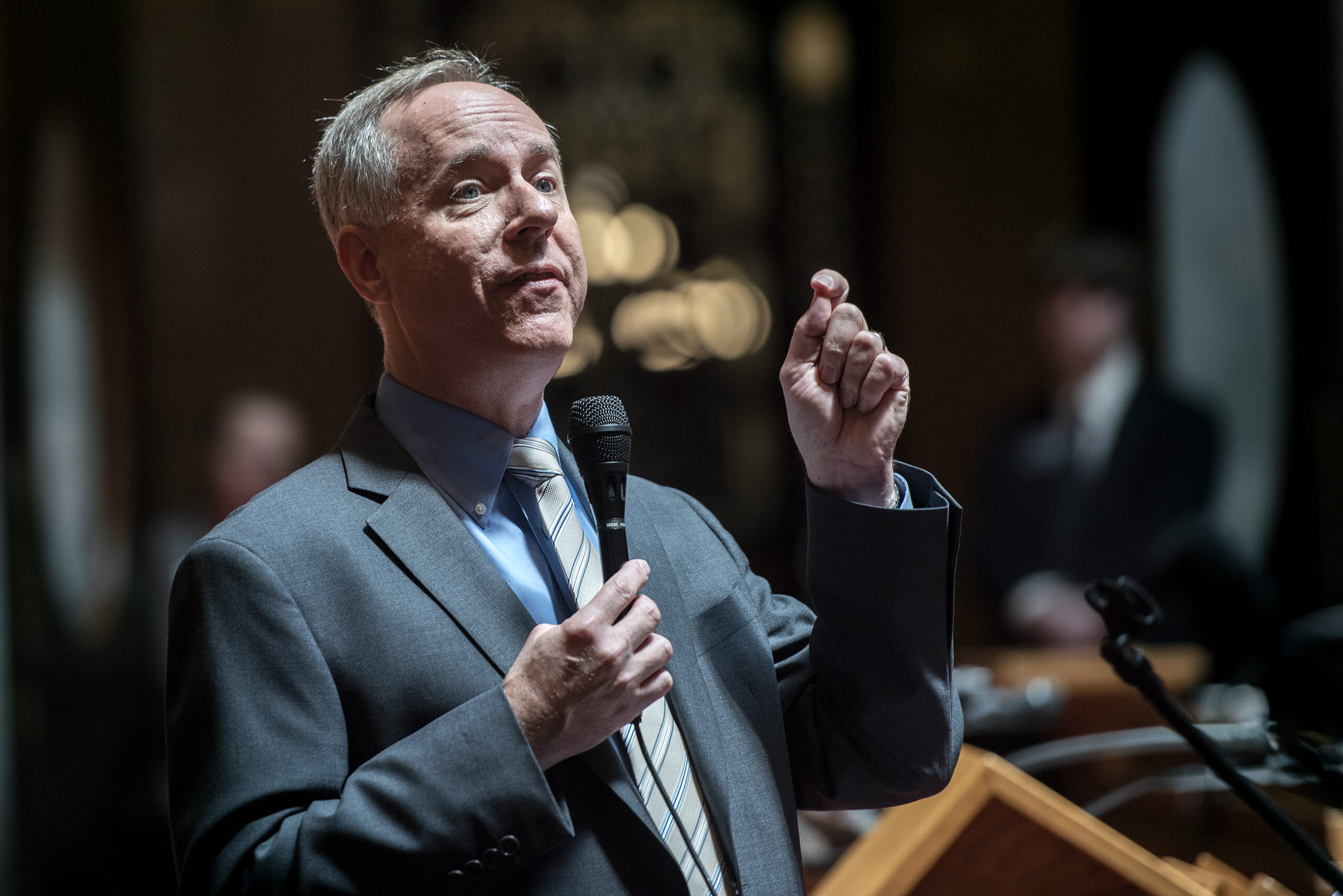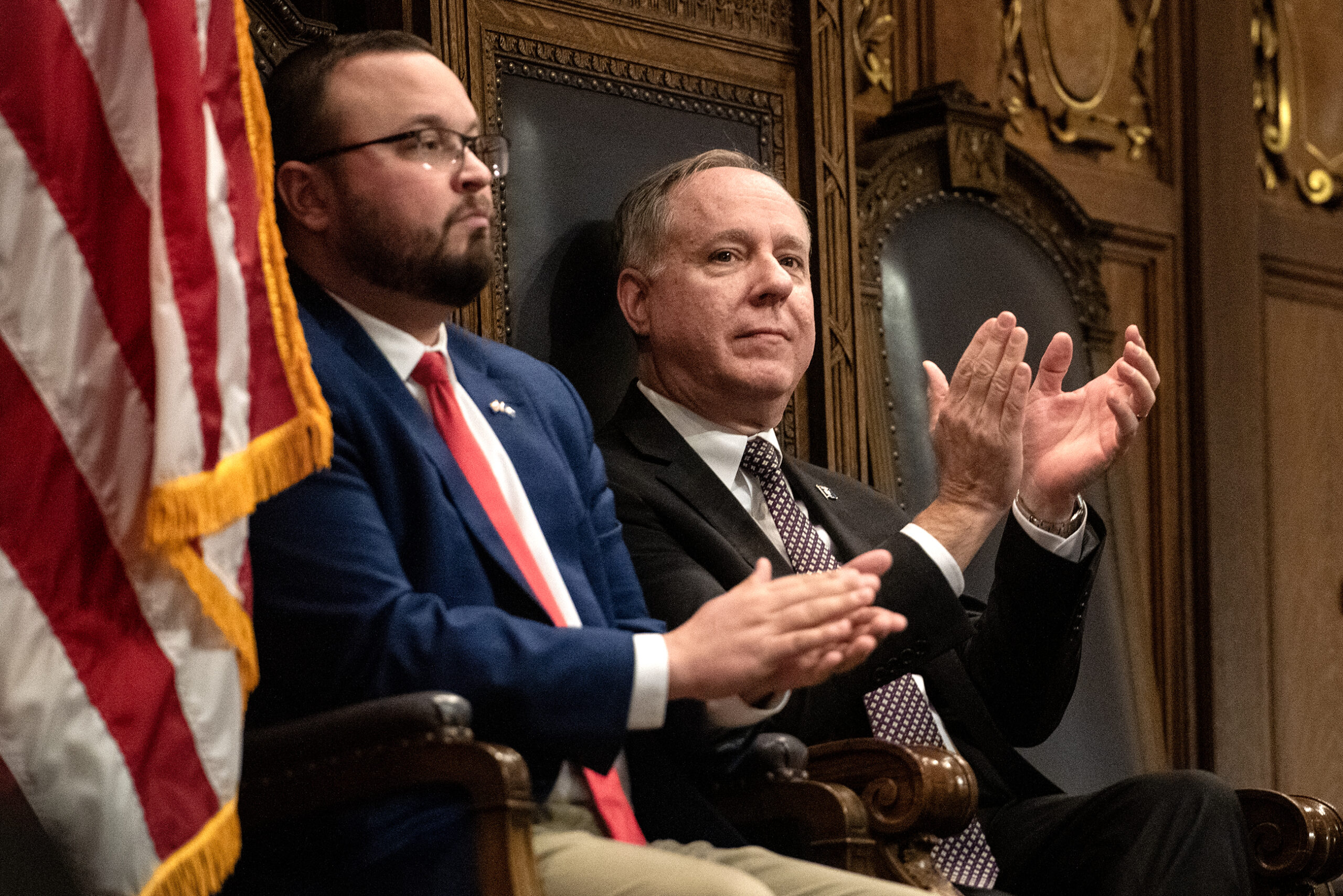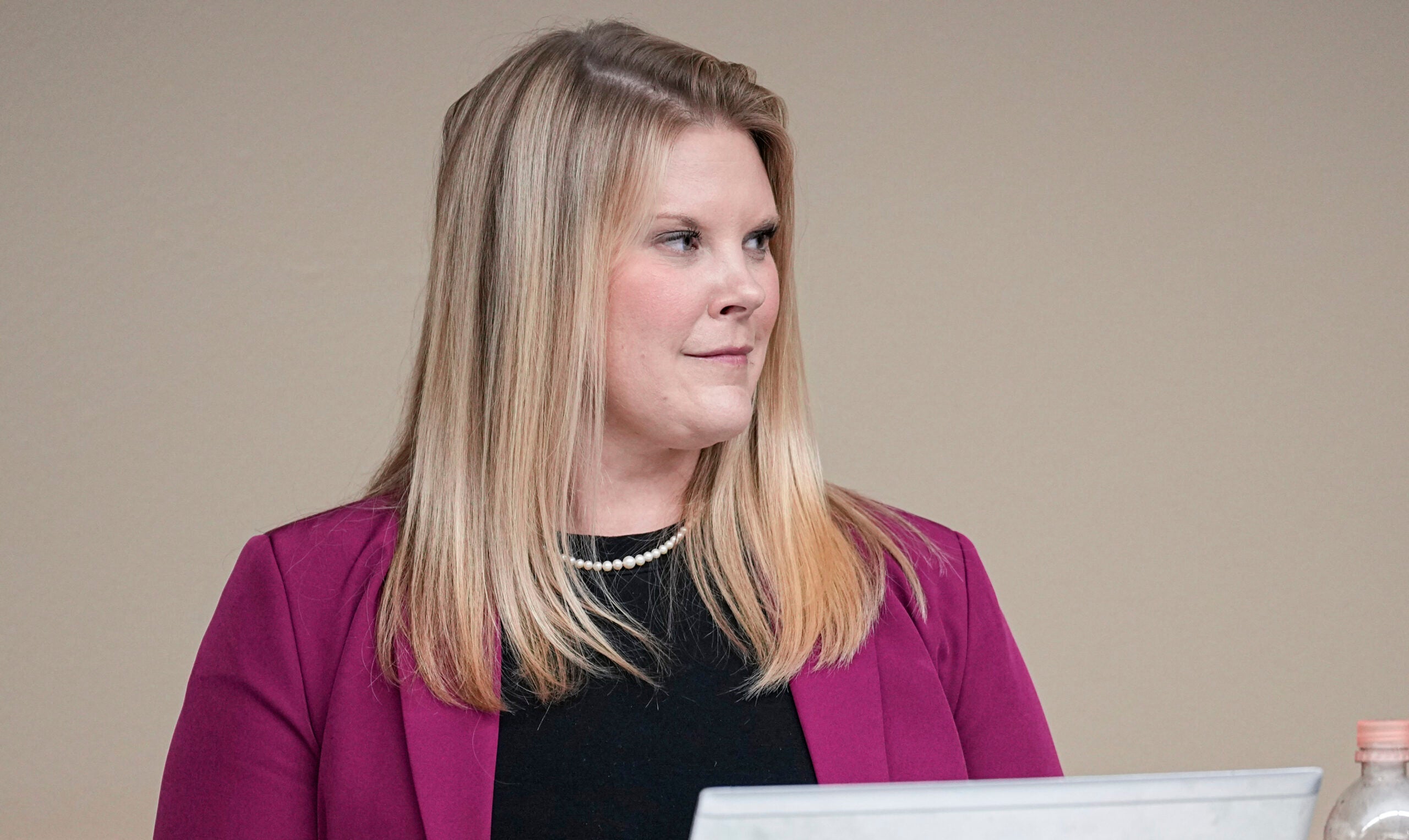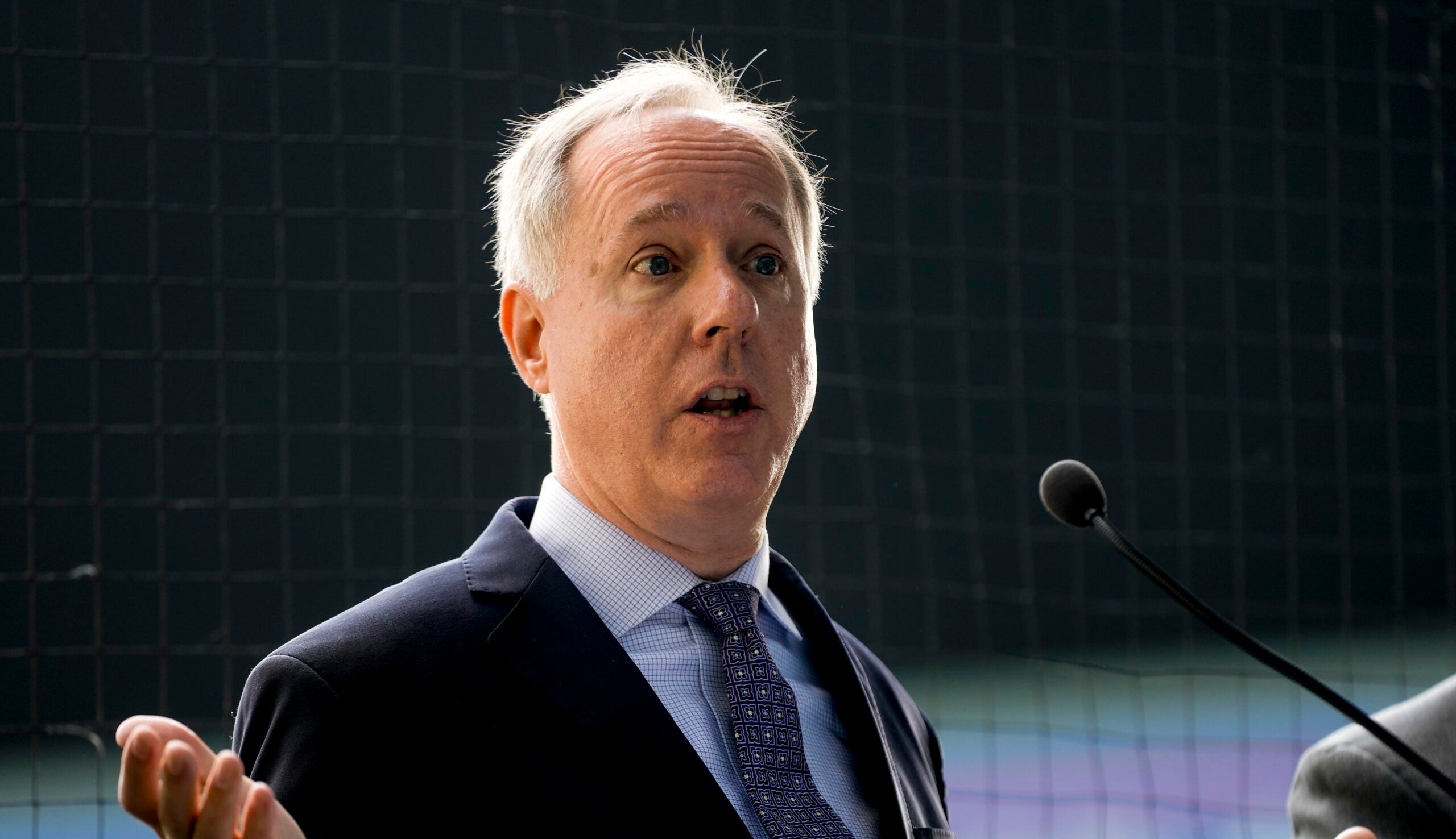A top-ranking Senate Republican is escalating calls for state lawmakers to oust the nonpartisan official overseeing the administration of Wisconsin’s elections.
State Senate President Chris Kapenga of Delafield sent a letter Wednesday to Assembly Speaker Robin Vos, R-Rochester, urging the GOP-controlled Assembly to start the process for impeaching Wisconsin Elections Administrator Meagan Wolfe.
But, on Thursday, Vos told a reporter with WKOW-TV he doesn’t plan to pursue impeachment while a lawsuit over Wolfe’s position is still pending.
Stay informed on the latest news
Sign up for WPR’s email newsletter.
Wolfe has been a target of debunked claims from deniers of Democratic President Joe Biden’s victory in the 2020 election. She has remained in her position amid ongoing litigation, despite attempts from Wisconsin Republicans to remove and replace her.
In his letter to Vos, Kapenga claims Wolfe’s refusal to vacate her seat violates state law and could “rise to the level of corrupt conduct in office.”
Under Wisconsin’s Constitution, civil officers of the state can be impeached for “corrupt conduct in office, or for crimes and misdemeanors.”
Last month, the GOP-controlled state Senate voted in an attempt to fire Wolfe. Immediately after the vote, Wisconsin’s Attorney General Josh Kaul, a Democrat, sued in Dane County Circuit Court, asking a judge to rule that the Senate’s vote had no legal effect, and that Wolfe can remain in office.
Wolfe did not respond Thursday to a request for comment about Kapenga’s letter. She’s said previously that, unless a majority of Wisconsin’s bipartisan elections commission votes to remove her, she’ll remain in her position until Wisconsin’s courts decide the issue.
“I will absolutely respect whatever the ultimate outcome is of that final determination of the courts,” Wolfe told Wisconsin Public Radio’s “The Morning Show” last week, adding she hopes that clarity comes “as soon as possible,” so it doesn’t derail work ahead of the 2024 election.
“I continue to focus on the job at hand,” Wolfe said. “The reality is, of course, that this has created a distraction for local election officials (and) for my staff during what should be a very important time for our preparations for next year.”
Vos’s office did not respond Thursday to a request for comment from WPR about Kapenga’s letter. In the interview with WKOW-TV, the speaker said he does not believe Wolfe remains legally in her role and said officials should advance a replacement for her.
But Vos said he wouldn’t advance impeachment while a legal battle is still ongoing.
“There’s no need to do an impeachment, because she’s not there lawfully,” Vos said. “We need to follow the law and see what the actual rulings are from the court.”
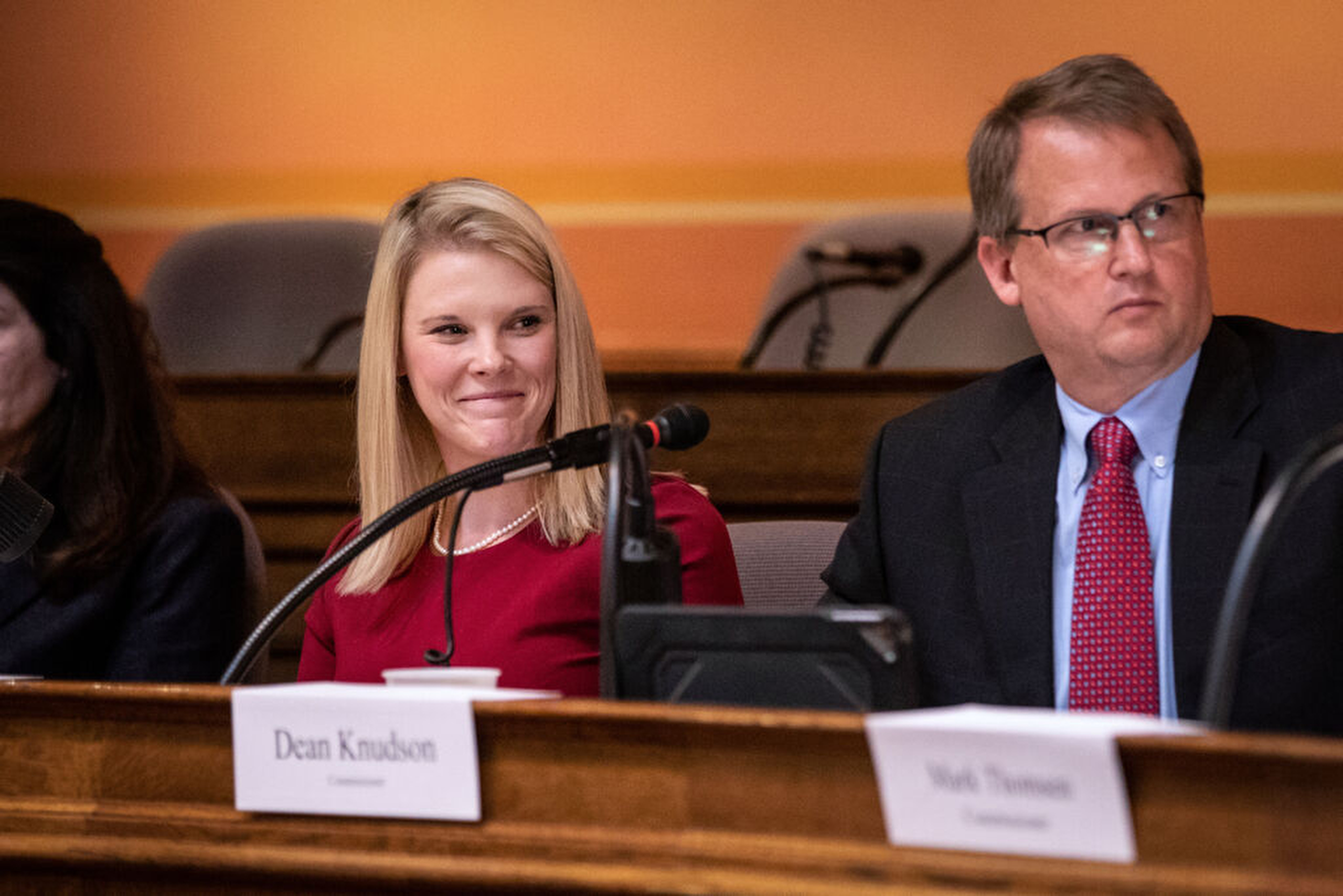
Wolfe remains in office, citing AG’s guidance amid ongoing lawsuit
One of Wolfe’s predecessors, Kevin Kennedy, said Thursday the arguments being raised to support Wolfe’s impeachment are ridiculous and an “insult to the people.”
“Her saying, ‘I want a court decision to decide whether or not the action that was taken is appropriate,’ is hardly corrupt conduct,” Kennedy said in an interview. “If you’re elevating what is essentially a political disagreement to an act of corruption, that’s really making a mockery of what the Constitution provides for.”
Kennedy was Wisconsin’s top elections official for more than three decades before he retired in 2016 from the state’s nonpartisan elections and ethics body, which was then known as the Government Accountability Board. The Wisconsin Elections Commission replaced part of that board’s function starting in mid-2016 after being created under a law signed by former Republican Gov. Scott Walker.
The bipartisan WEC voted to make Wolfe the statewide election administrator in 2018, and that appointment to a four-year term was later confirmed unanimously in May 2019 by the state Senate.
That term expired July 1 of this year, but Wolfe has continued in her role after the WEC deadlocked along party lines on a vote to renominate her.
In allowing Wolfe to remain in office as a holdover, Kaul and other state officials are citing a 2022 Wisconsin Supreme Court ruling, which found that Dr. Fred Prehn, a Wausau dentist and a Walker appointee to the state’s Natural Resources Board, could remain on that board indefinitely, even though his term had expired, in the absence of a successor confirmed by the state Senate. The high court, which at the time had a conservative majority, concluded a vacancy was only created when a person dies, resigns or is removed for cause. The decision resulted from a lawsuit originally brought by Kaul, after Prehn refused to step down so that an appointee of Gov. Tony Evers could take over on the board overseeing often-contentious environmental policies.
Even though a majority of the WEC hasn’t voted to advance Wolfe’s nomination, the Wisconsin Senate acted as if there were a reappointment before them so lawmakers could vote to reject the appointment in September.
At a public hearing about Wolfe’s renomination in August, election deniers aired false conspiracy theories about the 2020 election. Wolfe did not appear during that public testimony, however, citing guidance from Kaul.
In his letter to Vos, Kapenga said Wolfe’s absence at that hearing is evidence of her “cavalier rejection of the Senate’s roles and actions.”
But Kennedy says that hearing was a shameful display.
“You had all of these people standing up and making totally baseless claims that had been proven wrong over the past several years, and yet, the Legislature is willing to continue to entertain them in a public forum under the theory that they’re listening to their constituents,” Kennedy said. “In the meantime … no one else wants to walk into that lion’s den.”
A week after the Senate’s vote attempting to fire Wolfe, five Assembly Republicans began circulating a resolution calling for Wolfe’s impeachment. Several of the articles of impeachment rely on debunked claims about the 2020 election. Others falsely suggest that Wolfe is responsible for setting policy that is decided by the WEC.
Under Wisconsin’s Constitution, impeachment takes a majority vote from the state Assembly. After that, it would take a two-thirds vote in the Senate to convict someone of an impeachable offense and remove them from office. Republicans reached that supermajority threshold in the state Senate following a special election this spring.
Wisconsin Public Radio, © Copyright 2025, Board of Regents of the University of Wisconsin System and Wisconsin Educational Communications Board.
